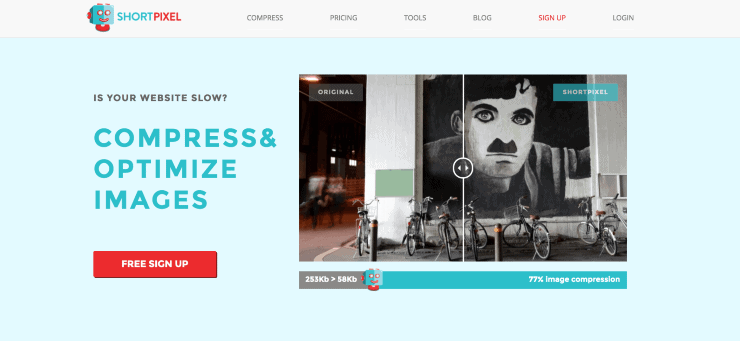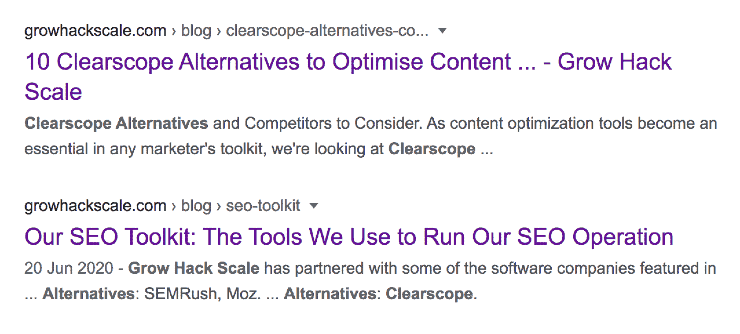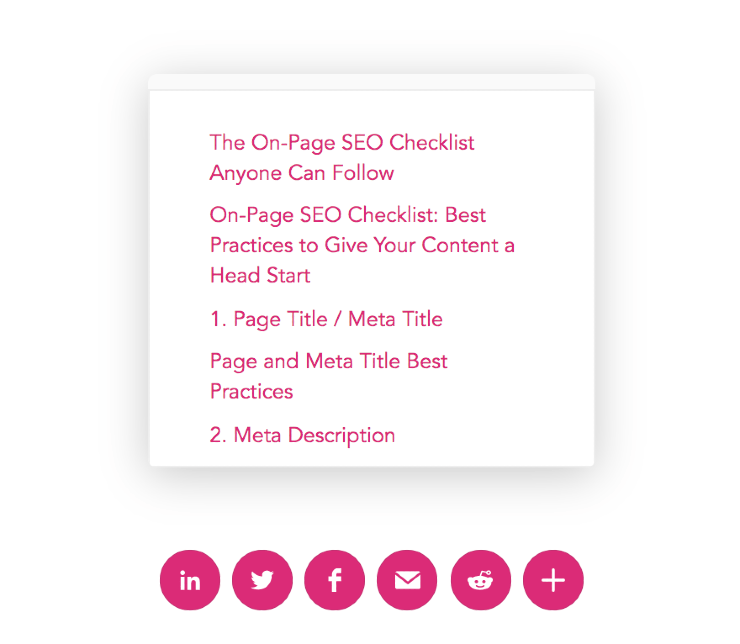
 SEO 101
SEO 101How to Improve SEO: 10 Ways to Improve Search Engine Rankings

.png)


SEO can seem like a long-term strategy that requires months and months of consistent work before you see results. While that’s true to an extent, there are lots of simple things you can do to improve your Google rankings today.
Before you get bogged down in building a stellar fool-proof SEO strategy, focus on the quick wins and changes you can make to your SEO efforts today.
Top 10 Ways to Boost Your Site's Rankings
1. Publish Relevant Content Regularly
Regularly publishing content that directly addresses your target audience’s search queries will result in users spending more time on your site. Dwell time - the amount of time users spend on your site, affects your ranking in search results.
When you write comprehensive useful content users are more likely to spend time on your site and therefore increase the dwell time.
Make your content relevant by:
- Performing thorough keyword research. Understanding which keywords users are regularly tapping into search engines will help you ensure your content engages with what users want to read.
- Increasing your word count. In-depth content is always more valuable than short pieces that skim over topics with no useful information. Google recognises this too.
- Include helpful outbound links. Well placed links to other sites relevant to your content will help users find answers they’re looking for.
Publishing original content regularly is also important due to the freshness factor. When Google recognises that your site is consistently publishing high-quality, useful content it will reward your site with higher rankings.
Sites that frequently publish content every few days as opposed to every few weeks will always rank better.
2. Write For Your Target Audience - Not the Algorithm
When you think about improving your site’s overall SEO status, it can be tempting to make your whole site about pleasing search engines. In some cases, this can even mean trying to write for search engines as opposed to your target audience.
Although you should never lose sight of the bigger SEO picture and implementing the right techniques to rank on page 1, you must make your target audience your number 1 priority.
The problem is that when you write or create content specifically for search engines, their algorithms are smart enough to know this. Google will even penalize your site if it suspects you’re trying to game the system.
While keywords are an important element of any content strategy, don’t fall into the dangerous trap of keyword stuffing. Attempting to squash in keywords every other word will just feel unnatural to your readers and it’s a quick way for your content to lose credibility.
Instead, conduct enough keyword research that you uncover the most relevant target keywords and phrases. Rarer long-tail keywords can be a goldmine for bringing in targeted organic traffic and all too often marketers miss out on these opportunities.
Make your users a priority and write the content to solve their problems and address their queries. Keep Google in the back of your mind but don’t make your content all about appeasing their algorithms.
The best part is that when you focus on creating helpful relevant content, search engines recognise this and will boost your rankings. Google follows users to the content and not the other way around.
3. Improve Your Site Speed
A slow site does nothing other than frustrate impatient users who will quickly turn to a competitor and increase your bounce rate.
In fact, as page load time goes from 1s to 3s the probability of bounce increases by 32% - page speed is vital when it comes to SEO.
People view slow sites as annoying or at worst, untrustworthy. Long load times distract users and will prevent them from engaging with your product or service.
You could have the most targeted, relevant content out there and tick every other technical SEO box but if your site loads slowly you’ll never top the SERPs - it’s as simple as that.
First, run your site through Google’s free SEO tool, PageSpeed Insights to find out your current speed and receive suggestions for what elements requires optimising.

As a starting point we recommend doing the following:
- Remove any non-essential plugins. If your site is hosted on WordPress, this is easy to do through the dashboard. Deactivating plugins you’re not using will help speed up your site’s load time.
- Enable file compression to reduce the size of files over 150 bytes.
- Lower the number of redirects. Every time a user clicks on a redirect, they have to wait additional time for the request to be completed.
- Optimise images. Ensure that images are a suitable size and no larger than they need to be. Try using ShortPixel for this.
- Implement a CDN (content delivery network to evenly distribute the load of delivering content.

Improving your site’s speed is an excellent way of lowering your bounce rate and boosting your SEO efforts.
4. Build Backlinks From Authoritative Sites
A strong backlink profile is still a big part of performing well in search engine results pages. Receiving links from other well-regarded, trustworthy sites helps paint the picture that your site is also a trusted authority in your industry niche.
Beware though - not all backlinks are created equal. Backlinks coming from sites with low authority in Google’ eyes or backlinks that seem spammy will damage your site’s performance in rankings.
If you do end up with some low-quality backlinks, it’s best to disavow them as soon as you can.
In Google’s eyes, top backlinks to receive come from high authority web pages like universities, large businesses or from other sites who receive large volumes of backlinks themselves.
When you create highly useful and relevant content, you’ll find that more key industry voices link to your site.
5. Link to Other Sites with Useful Content
To ensure your content is as comprehensive and relevant it can be, you can include links to other high authority web pages with more information on your chosen topic.
Linking to other high-quality websites sends the right kind of trust signals to Google and indicates that your content helps users find the answers to their search queries.
Don’t go overboard though - too many outbound links will distract users from your page and make it harder for visitors to engage with your content. A few well-placed links are enough to boost your site’s SEO efforts.
6. Use SEO-Friendly URLs
Your site’s URLs need to make sense to users. If a potential page visitor can’t understand your URL, Google probably can’t either.
A clear URL will clearly show users what the web page is about. For example, https://growhackscale.com/blog/clearscope-alternatives-competitors gives you a strong indication of the content’s topic.
Avoid URL’s that include underscores or too many numbers as these just confuse users and search engines as well as detract from what the content is about.
7. Write Meta Descriptions for All Pages
Since meta descriptions don’t directly impact your rankings on Google, it’s easy to forget about them and move on to another piece of SEO. However, a well-written meta description can be your best sales pitch when inviting visitors to view your site.
Your page’s meta description is the first thing users see when they arrive on Google’s results page.

Write a meta description that acts as an advert for your content. You want to provide a brief overview of the web page without going into so much detail that your meta description gets truncated halfway through to fit with Google’s space requirements.
Don’t fall into the trap of writing one or two meta descriptions for all of your web pages. This is a surefire way to alert Google for all the wrong reasons and could land you with a Google Penalty for duplicate content.
Keep your meta descriptions concise, original and informative and you’ll boost your CTRs. More clicks mean higher user engagement and Google always rewards content that attracts users.
8. Optimize Your Images
Images are a surprisingly critical element in your SEO game.
Remember that when users perform image searches, they type in the exact keywords for what they’re looking for.
Whenever you insert an image into your site or marketing design assets, make sure to fill in the title and alt text fields. Once Google understands what your image is about, it will start showing it to visitors with relevant image search queries.
Keep in mind that some site managers try to get a bit too clever when filling in these fields. While it’s a good idea to include a target keyword in your image description, don’t go overboard and stuff it in for the sake of it.
Making image descriptions accurate and relevant is the way to go when it comes to boosting your rankings.
9. Implement Web Analytics
Setting up web analytics should be a priority when you first build your site. If however, your site is already up and running, it’s not too late to implement web analytics.
Once you have a clear idea of your SEO strategy, web analytics software like Google Analytics are critical for tracking what’s helping or hindering your site’s rankings.

Free Google SEO tools, Google Analytics and Search Console are an excellent place to start.
10. Improve Your Reputation with Social Signals
A strong social media presence is a key part of any business’s long term SEO efforts. While Google doesn’t claim that social media directly impacts its rankings, there’s strong evidence to suggest that viral content tops SERPs.
Start by installing sharing social sharing buttons on your web pages that include Facebook, Twitter and LinkedIn.

This has the double benefit of improving user experience by making it easier to share content as well as increasing your content’s exposure on social media platforms, ultimately boosting the amount of organic traffic visiting your page.
Unsurprisingly, the key to working social media to your advantage is creating share-worthy relevant content.
Bottom Line on Improving SEO
With so many SEO techniques, it can be hard to know where to start and how to best implement a bombproof strategy. Starting today with these 10 simple tactics will undoubtedly result in a boost in your SEO rankings.
Remember when it comes to SEO, always put your user first, ahead of search engine algorithms. By doing this you’re more likely to create relevant and useful content that will perform well in rankings.

You're reading Human-Led SEO
A regular column dedicated to illustrating how a searcher-first approach to SEO enables businesses to generate more revenue in less time from organic search.
Coming Soon